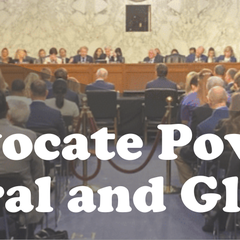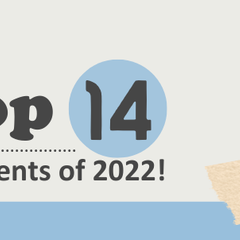
T1International Patients Speak out about US Patent Process
20 Feb 2023, 4:47 p.m. in #insulin4all USA, News & Statements by T1International
At T1International, we're fighting for lower insulin costs in multiple ways. We're holding pharma accountable and trying to get the price of insulin capped to ensure everyone - including the uninsured - aren't paying exorbitant prices. A more long term solution we're working on is related to patents. Over the past few months, T1International USA has embarked on an ambitious effort to reform patent examination in the US as a means to lower the cost of insulin and other drugs in the long-term.
In January of 1923, 100 years ago, the discoverers of insulin sold the patent for $1, saying “insulin does not belong to me, it belongs to the world”. Rather than the gift it was intended to be, their discovery has become the poster child for pharmaceutical price gouging.

Patents are intended to provide an exclusive right for a novel invention. By granting a protected property right to an inventor, patents are intended to spur innovation because the patent holder can make significant money for a limited time in exchange for publishing and disclosing the invention. However, the patent system has been exploited by Big Pharma to keep charging high prices on old insulins, or only changing their products in small ways.
The US is especially known for over-patenting, resulting in a marketplace that overprices life-saving medications. The US Patent and Trademark Office (PTO) is the administrative body in the US that grants patents. They have made a mistake by allowing for additional, overextended patents on older drugs. This has allowed for Big Pharma to create ‘thickets’ of patents around their products, enabling them to maintain a monopoly for far longer than intended, hindering true competition. For example, Sanofi has filed nearly twice as many patent applications in the US compared to Europe (46 in Europe compared to 74 applications in the US), and three times as many as in Japan (25 patent applications). These extra patents keep the cost of insulin and other drugs and technologies particularly unreasonably high in the US.

The PTO has proposed several initiatives to enhance collaboration with the Food and Drug Administration (the FDA). T1International asked the PTO and FDA to change their processes so that monopolies on insulin and other drugs can be avoided. Changing their patent review process in the below ways would have a clear impact on patients who use injectable insulin:
- USPTO examiners must learn more about what is actually innovative in pharma and biotech research and development to understand what’s truly new medical innovation for patients.
- The USPTO and the FDA must share information to maintain consistent representation between the two agencies so that pharma and biotech companies can’t make contradictory statements. For example, companies shouldn’t be able to tell the FDA that a new formulation of an old medicine is very similar to the old product and should be approved immediately, while telling the USPTO this is a new, nonobvious, unprecedented, breakthrough original product that deserves a new patent.

At T1International, we also highlighted the need to increase public participation in patent offices. The people whose lives are most affected by patent decisions should be engaged in the process and acknowledged as experts. When the USPTO and the FDA held a cross-entity public listening session on January 19th, T1International had three patient speakers, the most represented by any one group. Advocates spoke from personal experiences of how the current patent system has led to sky-high insulin prices and how that impacts their health; and they spoke about what needs to change. Disappointingly, the USPTO and the FDA didn’t get it. They asked technical questions of non-technical patient experts and generally made it onerous, complicated, and belittling for patient and non-pharma industry participation. So we also submitted over 1000 petition signatures, along with our technical comments, that outlined what good and ethical patient engagement in patent processes and examination should look like.
This overwhelming show of support by patients in this highly technical process shows that patients ARE experts. It shows patients have an important part to play in improving the historically secretive, highly technical, and generally unfriendly patent process that has made it so challenging for patients to participate in the past.
We hope to hear back about how these changes will be made in the next few months.
—
Read our technical comments that we submitted here. To learn more about how to improve patient engagement, see our blog post on ethical patient engagement.
For more information and to stay in the loop with upcoming US and Global actions, fill out the form here.







